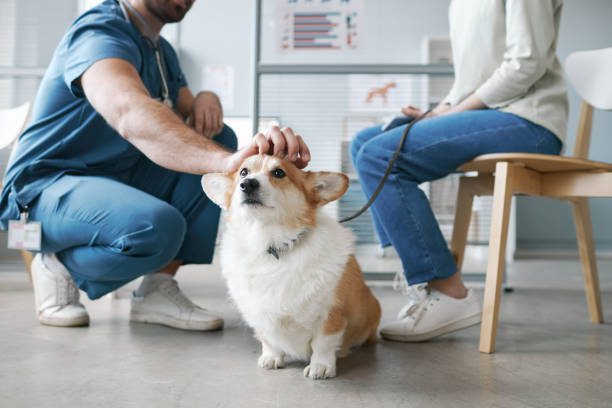Healthcare environments are often associated with high stress and fast-paced routines. But what if there was a way to bring a little joy, warmth, and even stress relief to both patients and medical professionals? Enter therapy animals! From therapy dogs visiting hospital rooms to office cats keeping staff company, furry (and sometimes feathery) friends are making a big impact in the world of healthcare.
The Healing Power of Therapy Animals
Studies have shown that interactions with animals can reduce stress, lower blood pressure, and even improve patient outcomes. Many hospitals, nursing homes, and rehabilitation centers have embraced therapy animals as a way to boost morale and provide comfort. Here’s how these animals help:
- Reducing Anxiety and Stress – Petting a dog or cat has been scientifically proven to reduce cortisol levels, helping patients and staff feel more relaxed.
- Encouraging Social Interaction – Patients who may be hesitant to communicate with doctors or nurses often open up when a friendly animal is present.
- Providing a Sense of Normalcy – Hospitals and care facilities can feel sterile and impersonal, but a visit from a therapy dog can create a home-like atmosphere.
Therapy Dogs: The Most Popular Healthcare Companions
Therapy dogs are the most widely recognized animals in healthcare settings. Specially trained for their roles, these dogs visit hospitals, hospice centers, and mental health facilities to offer companionship and emotional support.
- Hospitals and Rehabilitation Centers – Therapy dogs help patients recovering from surgery, serious illness, or trauma by providing comfort and motivation for physical activity.
- Nursing Homes and Hospice Care – Senior patients often benefit from therapy dogs, as they provide companionship, reduce loneliness, and stimulate positive memories.
- Pediatric Units – Many children’s hospitals have therapy dog programs to help young patients feel more at ease during treatment.
Office Cats: The Furry Healthcare Workers You Didn’t Know You Needed
While therapy dogs are often brought in as visitors, some healthcare offices and veterinary clinics have their own resident office cats! These feline friends offer a calming presence for both employees and patients.
- Reducing Workplace Stress – Studies show that petting a cat can release oxytocin, the “feel-good” hormone, which helps reduce stress among staff.
- Creating a Welcoming Atmosphere – A cozy, purring cat can make a waiting room feel much less intimidating.
- Providing Emotional Support to Patients – Some medical and therapy offices allow patients to interact with their office cat to ease anxiety before appointments.
Unusual Therapy Animals in Healthcare
Dogs and cats may be the most common, but some healthcare facilities have gotten creative with their animal therapy programs. Here are a few unusual therapy animals making a difference:
- Miniature Horses – Some therapy programs use miniature horses to visit hospitals, offering a unique and uplifting experience for patients.
- Bunnies – Some hospitals allow therapy rabbits to visit, especially in pediatric and geriatric care settings.
- Parrots – Certain therapy programs use talking parrots to engage patients, particularly those in memory care facilities.
- Guinea Pigs – These small, gentle creatures are great for patients who may be afraid of larger animals.
The Future of Therapy Animals in Healthcare
As more healthcare facilities recognize the benefits of animal-assisted therapy, we can expect to see even greater integration of therapy pets in medical settings. Some hospitals are even considering permanent pet therapy programs, where trained animals and their handlers are part of the healthcare team.
Bringing More Comfort to Healthcare with Furry Friends
Whether it’s a therapy dog making rounds in a hospital, an office cat brightening up a clinic, or an unexpected therapy parrot keeping patients entertained, animals are proving to be invaluable members of the healthcare world. Their unconditional love and comforting presence provide much-needed relief to both patients and healthcare professionals alike.
At Voca Healthcare, we recognize the importance of reducing stress and enhancing well-being in the workplace. If you’re looking for compassionate, dedicated healthcare professionals who prioritize patient care, we’re here to help!
Do you have a favorite therapy animal story? Share your experiences with us!
